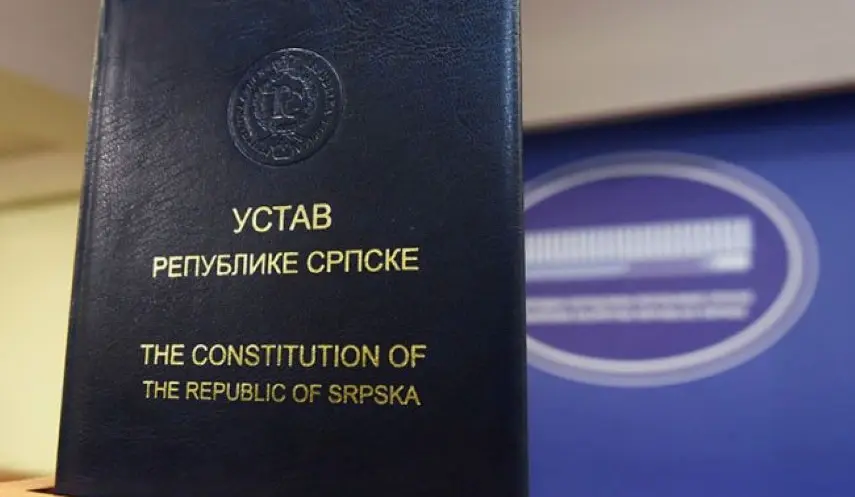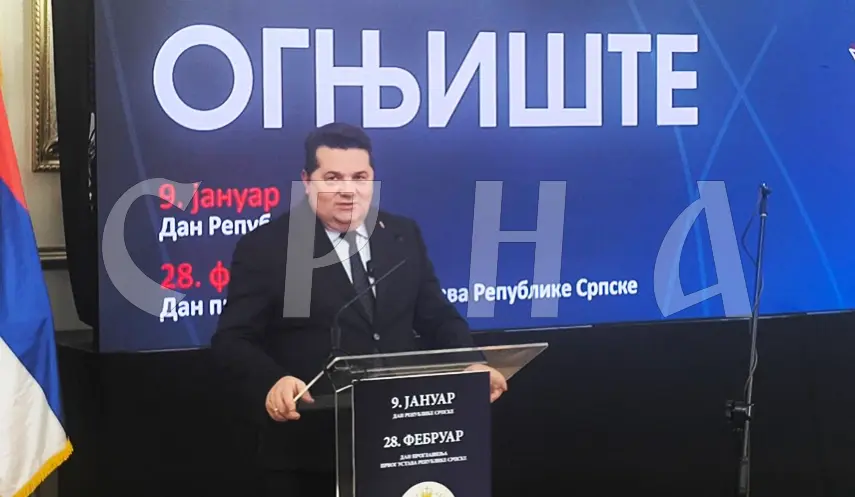KARAN: BiH WAS CREATED BY MERGER OF TWO ENTITIES, NOT BY DAYTON AGREEMENT
Republika Srpska - Banja Luka - Faculty of Law - lecture
11/19/2025
12:04

BANJA LUKA, NOVEMBER 19 /SRNA/ – Minister for Scientific and Technological Development and Higher Education of Republika Srpska Siniša Karan stated that BiH was created by the merger of its two entities, not by the Dayton Agreement and its Annex Four.
"For thirty years there has been a complete reversal of theses. BiH was created through a system of aggregation and the merging of two entities," Karan said during a lecture to students of the Faculty of Law in Banja Luka on the topic "The Constitutional Position of Republika Srpska in Dayton BiH".
He stressed that this is extremely important because it determines all subsequent consequences related to the form of state organization, and above all, the division of competencies, compromise as a mode of decision-making, parity, and the way in which all joint institutions are created.
Karan emphasized that, for 30 years, the Faculty of Law of the University of Banja Luka and legal scholarship have been providing answers regarding developments in BiH.
"Unfortunately, even 30 years after /the Dayton Peace Agreement/, BiH is still in a formative phase and still searching for its direction," said Karan, also a professor of constitutional law.
He pointed out that the Dayton Peace Agreement was a framework for achieving peace in BiH.
"That framework consisted of the constitutional-legal position of the three constituent peoples, that is, of Republika Srpska and FBiH, whose aggregation and merger resulted in the creation of BiH," Karan stated.
He noted that Republika Srpska will mark the anniversary of the Dayton Peace Agreement in two days, an inexhaustible topic, as he put it.
"After 30 years, we are now bringing this topic into the context of what Dayton truly represents. We constantly refer to the term `original Dayton` and what the three constituent peoples actually agreed upon at the time, as well as the formula of life to which all parties consented," Karan said.
He added that he wanted to exchange opinions with the students during the lecture.
"I want to see how our future lawyers, those who will soon be guiding these processes, think about these issues. I want to hear what they consider to be the solutions and dilemmas of a legal, constitutional-legal, and political nature," Karan said.
The Dean of the Faculty of Law at the University of Banja Luka Zoran Vasiljević said that those who have not respected the letter of the Dayton Peace Agreement and the Constitution of BiH for 30 years must understand that this is not the right path and that it leads BiH toward a hopeless colonial status.
"I hope they will return to proper interpretations of the Dayton Agreement in line with legal principles, respecting the equality of the entities and the constituent peoples, for the benefit of all citizens of BiH," Vasiljević said.
Karan's lecture was attended by numerous students, representatives of the Faculty of Law, and members of the academic community of Republika Srpska.

KOLJEVIĆ: FIRST CONSTITUTION CONFIRMED SERBS’ STATEHOOD AND COMMITMENT TO FREEDOM

STEVANDIĆ: REPUBLIKA SRPSKA REMAINS PERMANENT WITH ITS CONSTITUTION AND INSTITUTIONS

DODIK: THE FUTURE OF THE SERB PEOPLE LIES IN A NATIONAL PEOPLE'S STATE





